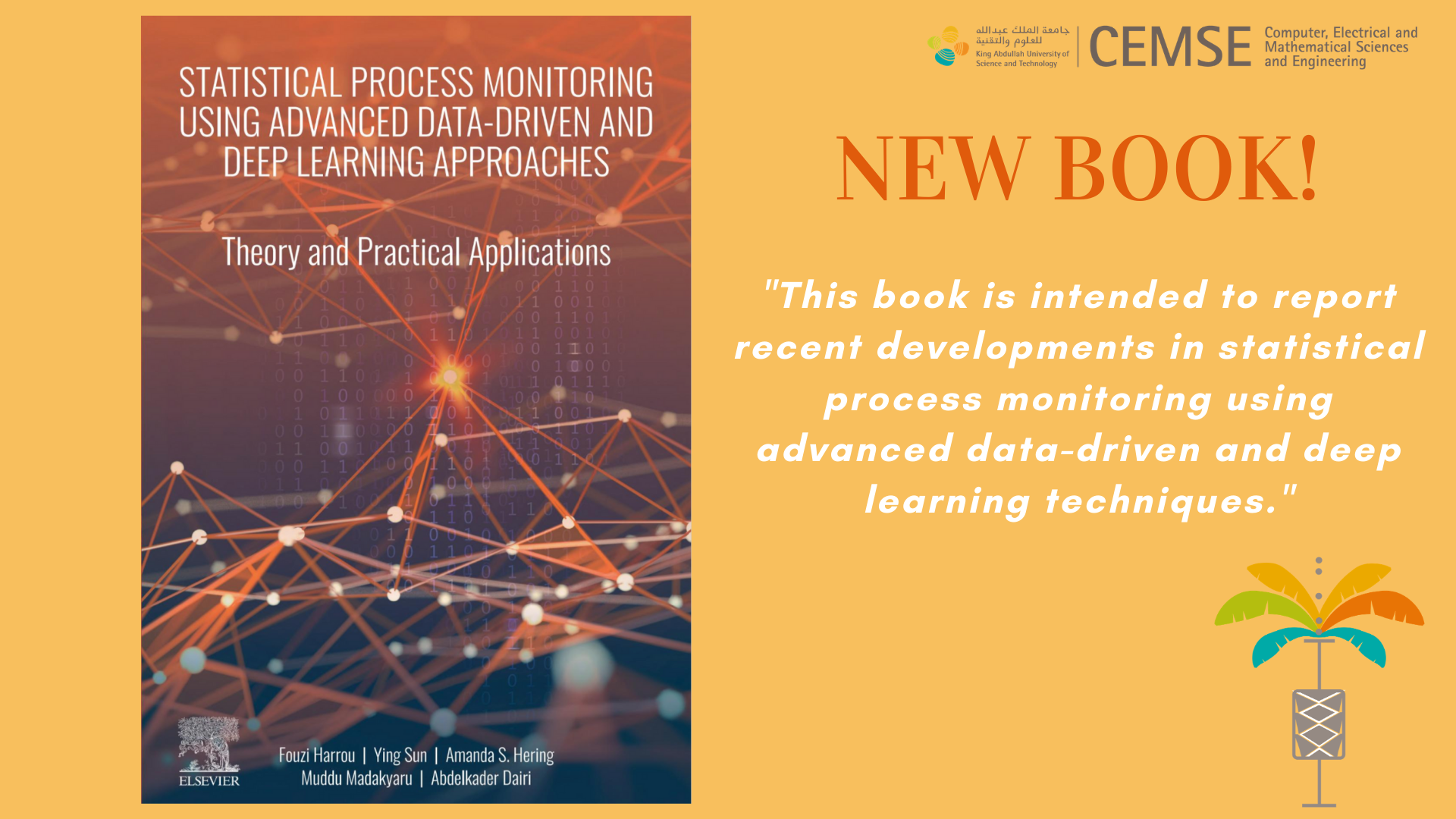By David Murphy
The KAUST Environmental Statistic (ES) research group has recently published a book titled "Statistical Process Monitoring Using Advanced Data-Driven and Deep Learning Approaches." The book is the outcome of the Competitive Research Grant (CRG) project led by KAUST Professor Ying Sun, Associate Professor of Statistics.
Produced in collaboration with several leading statisticians — including Professor Amanda S. Hering, Baylor University, U.S.; Professor Muddu Madakyaru, Institute of Technology Manipal Academy of Higher Education Manipal, India; and Professor Abdelkader Dairi, University of Science and Technology of Oran-Mohamed Boudiaf, Algeria — the book is aimed at academic readers, engineers, data scientists, applied statistics and industrial statisticians.
“The book can be assimilated by advanced undergraduates and graduate students aware of basic multivariate statistical analysis and machine learning,” noted Fouzi Harrou, a research scientist based in the KAUST ES group.
“Anomaly detection and attribution (isolation) is undoubtedly an important research line in statistics. Our book tackles multivariate challenges in process monitoring by merging the advantages of univariate and traditional multivariate techniques to enhance their performance and widen their practical applicability,” he added.
Unpacking data-driven based approaches for anomaly detection and isolation
The recently published book is primarily based on data-driven approaches for anomaly detection and isolation and includes several case studies and comparisons of different methods. Harrou, who has 14 years of experience in the field of statistical process monitoring and anomaly detection, believes that readers of the book will gain an in-depth understanding of fault detection and isolation in complex and multivariate systems.
“Our book gives the reader several real engineering and environmental applications to clearly show the implementation of anomaly detection and isolation approaches while familiarizing themselves with the most suitable data-driven based techniques,” Fouzi explained.
As the author of over 130 refereed journals and conference publications and book chapters, Fouzi believes the ES group’s latest book has several key features. “The book uses a data-driven based approach to fault detection and attribution,” he explained. “It also provides an in-depth understanding of fault detection and attribution in complex and multivariate systems, and it familiarizes the reader with the most suitable data-driven based techniques, including multivariate statistical techniques and deep learning-based methods.”
“The developed approaches in the book are applied to monitor many processes, such as waste-water treatment plants, detection of obstacles in autonomous driving environments, chemical processes, ozone pollution, road traffic congestion, and solar photovoltaic systems,” he added.
The KAUST ES research group is currently preparing another book titled "Advanced Road Traffic Modelling and Management Using Statistical and Deep Learning methods," due for publication in April 2021. ES researchers are concurrently working on another CRG project to develop novel and useful statistical tools for complex spatio-temporal processes and to apply these methods to enhance the reliability and performance of renewable energy systems, among other applications. The group is planning to publish findings from this project in a book scheduled for release in 2022.

